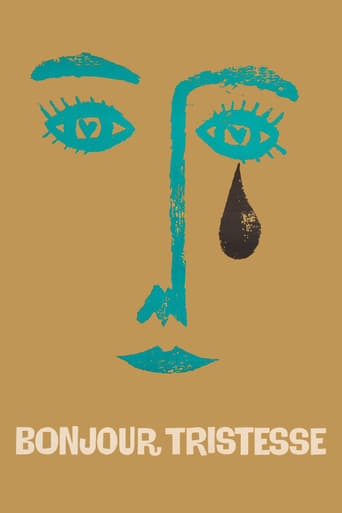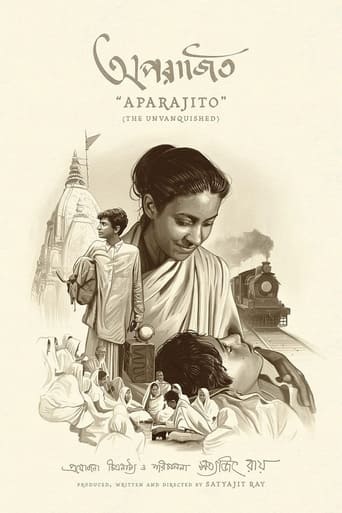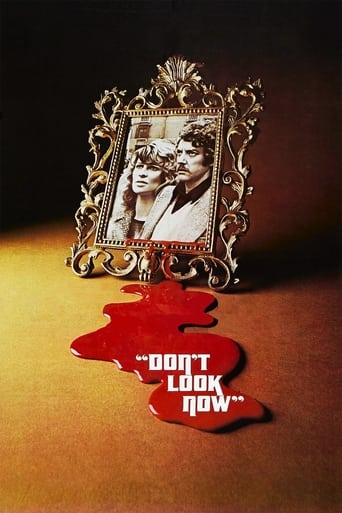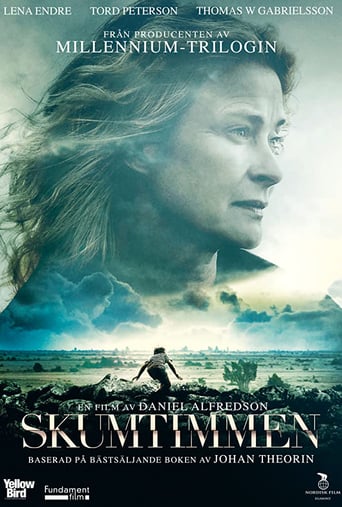


Bonjour Tristesse
Cecile is a decadent young girl who lives with her rich playboy father, Raymond. When Anne, Raymond's old love interest, comes to Raymond's villa, Cecile is afraid for her way of life.
-
- Cast:
- Deborah Kerr , David Niven , Jean Seberg , Mylène Demongeot , Geoffrey Horne , Walter Chiari , Martita Hunt


Similar titles










Reviews
I love this movie so much
Lack of good storyline.
I'll tell you why so serious
As somebody who had not heard any of this before, it became a curious phenomenon to sit and watch a film and slowly have the realities begin to click into place.
Adapted from Françoise Sagan's debut novel published in 1954 when she was merely eighteen- years-old, Otto Preminger's BONJOUR TRISTESSE thrives on weaving its melodramatic tenor through the flippant precociousness of its protagonist, Cécile (Seberg), a 17-year-older gamine living with her affluent but roué father Raymond (Niven).The film starts in Paris, in her all-out glamour and allure reflected through the monochromatic lens, Cécile and Raymond appear to be the perfect father-daughter pair, no generation gap, neither is too clingy to each other, they are like-minded and incredibly compatible, thoroughly luxuriate in their bourgeois dalliances as if nothing could ever faze them.However, elicited by Juliette Gréco's terribly sensuous and lugubrious rendition of the titular theme song BONJOUR TRISTESSE, written by Georges Auric, Cécile's memory hacks back to one year earlier, in French Riviera, while the movie flashes back into its varicolored richness, it is a guilt- ridden recollection, - seven, is my lucky number, murmurs Cécile, but exactly, what happened last summer?Tragedy happens, certainly, bonjour tristesse literally means hello sadness, but before that, there were happy moments, Cécile was on vacation with Raymond and his young lady friend Elsa (Demongeot, a blonde bombshell in Marilyn Monroe-ish chicness) in his villa, soon they were joined by Anne (Kerr), an old friend of Raymond's late wife, Cécile's godmother, now a divorcée, whereas Cécile found herself a new beau, Philippe (Horne), an open-faced, handsomely-built young man living nearby.The cast must have such a great time in making this film, sunbathing, swimming, water-skiing, dining, drinking, gambling and wiggling, everything sounds like a paid holiday. Then, bang, Raymond expresses his affections to Anne and proposes to marry her, and suddenly Elsa being kicked out of the picture. The match seems perfect, even in the eyes of Cécile, maternity endearment is something very healthy for her growth and nobody could be more suitable than Anne to assume that role. But soon, the spoiled side of her nature eggs her to defy Anne's matronly discipline, and an apparently naive plan (with the help of Philippe, a fool in love, and the "brilliant" Elsa) to scuttle Raymond and Anne's marriage will go haywire and the aftermath will make Cécile rue the day.There is something inherently vapidly in Sagon's story, but the movie retains magnificently a superficial but bewitching unpretentiousness of Raymond and Cécile, which makes them watchable, they are not intelligent people, Anne is evidently too good for them, but on the other hand, they are very much honest to themselves, the tragedy could have been avoided (there is no clarification it is an accident or a suicide, but the marriage would still hit a bumper road in a long run), in a way, Cécile's scheme only help Anne to see through Raymond's nature, so from a more cautionary aspect, the whole story seems to bear witness that we should never have the illusion that one's unconditional love can change a person, either take it wholly or leave it immediately, there is no grey area here.Preminger really loved Seberg, after the flop of SAINT JOAN (1957), Seberg's screen debut, he didn't give her up, here he cherry-picks her a tailor-made role and unreservedly puts her in the centre of the narrative, to flesh out her elfin mischief, singular delicacy, all in a continental style, prepares her for the star-making triumph in Godard's BREATHLESS (1960).The Niven-Kerr pair works side by side twice in a calendar year, compared with a more self- inflicted restraint in Delbert Mann's ensemble piece SEPARATE TABLES (1958), Niven is much more nonchalant as a sybarite, to quote Raymond - is silly and vain, whereas Kerr hops up with a refreshingly relaxed air of being "the unattainable Anne" during her flashy entrance, only not soon would she backtrack to the stereotype of "Raymond, I cannot be casual" seriousness, or, in Cécile's words, "the prim, prissy and prude".Calling BONJOUR TRISTESSE a high point of Preminger or any these leading stars' coruscating careers is a far-fetched argument, however, its reputation and mojo as a level-headed cinematic raconteur endures the test of time, sleekly orchestrated by Preminger's efficient artifice and Auric's string-heavy score.
It's a mystery why Otto Preminger, known for producing lengthy movies of weighty content, chose to apply his talents to such paper-thin material, and to select as star a woman whose acting abilities are suited more to the annual high school play. This movie might just as well be titled "Life among the Indolent Rich." It is very hard to work up any human sympathy or interest in these spoiled, wealthy, idle layabouts. Ann is the only character with any redeeming qualities, and it strains credulity as to why she would want to associate with this crowd. The one redeeming quality of the film is the gorgeous cinematography and the stunning beauty of the Riviera setting (it's difficult to empathize with the woes of people fortunate enough to be able to live in such environs). Deborah Kerr and David Niven are always a joy to watch, despite the flimsy script here, but Jean Seberg mugs and overacts her way through this flick, making an unsympathetic character even more unsympathetic. It's also grating - to me anyway - to hear her address her father by his first name, as is so often the fashion among the chi-chi, progressive set. The whole tone of the movie is so lightweight that the eventual tragic conclusion simply isn't credible. We can thank Preminger for eschewing his usual lengthiness and keeping it down to an hour and a half, even though it seems as long as "Exodus" (which is something the viewer is tempted to do while watching it).
Reviews of this film are more interesting and thought provoking than most. A number of them convey critical insights that certainly deepened my appreciation. Yes, the film is flawed, but it also resonates beyond standard soap opera mainly because of its tragic central premise. That the movie doesn't fully realize its aim, I'm sorry to say, is largely because of limitations in Seberg's performance. I agree, she's a lively and compelling screen presence with a freshness that's genuinely appealing. However, the role of Cecile calls upon more emotional depth than Seberg manages to convey, especially with the absence of troubled emotions. Thus the sense of tragic outcome stems from sources other than Seberg's performance. Now, there are several ways of looking at Cecile's emotional make-up and maturity, but there's one I believe that most strongly recommends itself and also puts Seberg's performance in the best light.On this view, Seberg has Cecile's character just right during the sunny Technicolor phase. Cecile is simply too immature to realize the potential consequences of her scheming actions. Thus, Cecile (Seberg) attaches no more gravity to breaking up her father's relationship than she does to skipping her studies. She's all spoiled selfishness wrapped in a winsome smile. And it's not until the car crash that she realizes the consequences of her selfish act, and experiences an emotional depth for the first time. Her scheme thus results not from making a wrongful choice but from not even realizing that a choice is being made. This view would vindicate nine-tenths of Seberg's unconflicted Technicolor performance, but not the black- and-white phase where Seberg fails to convey the conflict required. This view would also explain the added features of narration, color change and Saul Bass graphics once Preminger realizes that Seberg's performance is not enough to convey the necessary sense of tragedy.Despite this central flaw, the movie remains oddly haunting. Maybe it's because of a sun- washed paradise so carelessly lost, or of a summer of such promise turned into a lifetime of regret. I really like the observation that father and daughter behave as though actions have no consequences. As a result, their humanity is only realized once the importance of this lesson is tragically driven home. Only by then, it's too late. In my view, the movie remains regrettably underrated.
Bonjour Tristesse covers similar ground as 'The Member of the Wedding.' to wit, a possessive daughter tries to prevent a relationship from forming between a beloved family member and an interloper. While critics love 'Member of the Wedding,' I find Julie Harris to be a jumbo-drag and an adenoidal, scenery-chomping thespian in everything she's been in. This portrays irritating, rich idiots as in Last Year at Marienbad, but this time it's a travelogue.In this Preminger movie sequences develop, but characters do not. For the first 30 minutes he's content to blur the father-daughter relationship between Seberg and Niven, making uncomfortable sexual readings possible. Once the conflict is introduced, Seberg can't deliver the depth the part requires. Kerr pulls rank and turns the film into 'Endless Love.' Seberg's vacuous narration, is like something out of Strange Interlude - it is not good. I really wish someone other than Niven was in his role. He spends so much time normalizing orthodox British behavior in all his movies, he never gets around to the character.In the most memorable sequence, an evening out dancing becomes a free-for-all in a harbor. Bertolucci steals the entire scene for his empty exercise, 'The Conformist.' Kerr is on board to clasp her hands and portray another major pain (as in Black Narcissus, Night of the Iguana, King and I, Heaven Knows Mr. Allyson, Tea and Sympathy, etc. etc.). Really, Kerr was a horrible actress. I wish every movie with her could end with a fatal car crash, or even better, start with one.People uncomfortable with ambiguity should avoid this.
